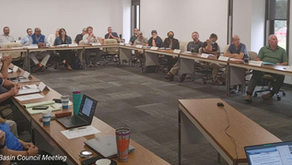Facilitation, Soft and Hard
- JD Solomon
- Jan 3, 2022
- 3 min read
Updated: Dec 24, 2022

There is a lot to unpack in the standard definition of facilitation.
"A facilitated session is a highly structured meeting in which the meeting leader (the facilitator) guides the participants through a series of predefined steps to arrive at a result that is created, understood, and accepted by all participants."
We will dive a little more into “through a series of predefined steps” and “a result that is created, understood, and accepted by all participants” to develop some takeaways on soft and hard facilitation.
Soft and Hard Skills
Oxford University Press defines soft skills as "personal attributes that enable someone to interact effectively and harmoniously with other people.” As an umbrella term, soft skills are associated with people skills and social skills. Soft skills are equally applicable and desirable across all professions.
Hard skills are technical skills that are specific to different professions. After World War II, the US Army referred to hard skills as anything related to the use of machinery. By contrast, the US Army defined soft skills as “job-related skills that involve little or no interaction with machines and whose application on the job is quite generalized.”
Levels of Facilitation
Facilitation is primarily a soft skill. Expert facilitators have the proficiency to lead a group through predefined steps that arrive at an acceptable solution (see definition) in just about any subject area.
Strong facilitators lack the full range of proficiency as an expert but are good at leading their teams through an agenda and an acceptable solution without getting stuck.
Functional facilitators can guide teams as active agenda managers by being attentive to a group’s purpose, energy, needs, and next steps. Functional facilitators are best leading many kinds of collaborative work or light facilitation.
The term “specialized facilitation” is not used much within the facilitation profession because, in theory, expert facilitators can facilitate anything – at least with the support of another strong facilitator with some technical knowledge. In practice, this is not the case. Understanding the predefined steps of a specific activity within a particular profession does matter.
On the other hand, “expert facilitator” is a good counterbalance to the belief that a good Subject Matter Expert (SME) can plow through an agenda as a strong facilitator and arrive at a solution that is created, understood, and accepted by all participants. In other words, primarily focusing on executing the predefined steps will not get you where you need to go.
Bringing It Together
I refer to soft facilitation as activities such as Strategic Plans, Board Retreats, Regionalization Planning, Economic Development Plans, and Community Resilience Planning. These facilitated sessions require an elevated level of personal and social skills and have fewer required predefined steps. However, saying that these as “soft facilitation” does not mean that they do not have technical aspects (as anyone who has been through my facilitated Strategic Planning or Board Retreats can attest).
I call certain types of facilitation hard because they require hard skills. I refer to hard facilitation as activities such as Root Cause Analysis (RCA), Human Reliability Analysis (HRA), Failure Modes and Effects Analysis (FMEA), Fault Tree Analysis (FTA), Reliability Assessments, and different forms of Risk Analysis. Most of these activities have some form of standard framework and, in many cases, require some knowledge of machinery or industrial processes.
If you are asked to lead a facilitated session, reflect on your hard skills, soft skills, and your level of proficiency in the facilitation continuum. Remember that facilitation is more than producing an agenda and managing a group of people through it.
If you are asked to select someone to facilitate an activity, reflect on the strengths and weaknesses of your internal resources. Again, remember that facilitation is more than producing an agenda and managing a group of people through it. Think of facilitation, soft and hard.
JD Solomon Inc provides facilitation, asset management, and program development solutions at the nexus of facilities, infrastructure, and the environment. Contact us for more information about providing facilitation for your organization or training your future facilitators.




Commentaires